The International Office of Universitas Diponegoro (KUI UNDIP) hosted the Asian-African Student Conference with the theme “Global South to South Cooperation: Climate Justice and Sustainability” from July 29-31, 2024. The event was attended by 42 international students from various countries such as Pakistan, Afghanistan, Yemen, Ghana, the Philippines, The Gambia, Nigeria, Myanmar, Sierra Leone, Sudan, Somalia, Kenya, Timor-Leste, and Liberia, who are pursuing their studies at universities in Indonesia. Among them were international students from UNY, UI, UGM, UIII, UNS, UPI, UMY, UDINUS, UIN Walisongo, and UNISSULA.
In his online welcome speech, Wijayanto, S.IP., M.Si., Ph.D., Vice Rector for Cooperation and Innovation, expressed his warm greetings to the international students. He emphasized that this forum represented the tangible actions of students as leaders, activists, and researchers to realize a sustainable future. “This is a part of a cross-continental partnership in a discussion regarding policy and framework about renewable energy. Let’s make the best of it,” he stated.
Pulung Widhi Hari Hananto, S.H., M.H., L.L.M., Head of KUI UNDIP, mentioned that the student conference was initiated with the spirit of Diponegoro. “With the values of Prince Diponegoro’s struggle, one of Indonesia’s national heroes, we strive to achieve change,” he said.
The event continued with a plenary session featuring four speakers: Director for Asia-Pacific and African Intra and Inter-regional Cooperation, Tyas Baskoro Her Witjaksono Aji; Vice Head of UNDIP Ranking Office, Dessy Ariyanti, Ph.D; ESD and Business Sustainability Expert of SDGs Center UNDIP, Prof. Bulan Prabawani, Ph.D; and Head of KUI UNDIP, Pulung Widhi Hari Hananto, S.H., M.H., L.L.M.
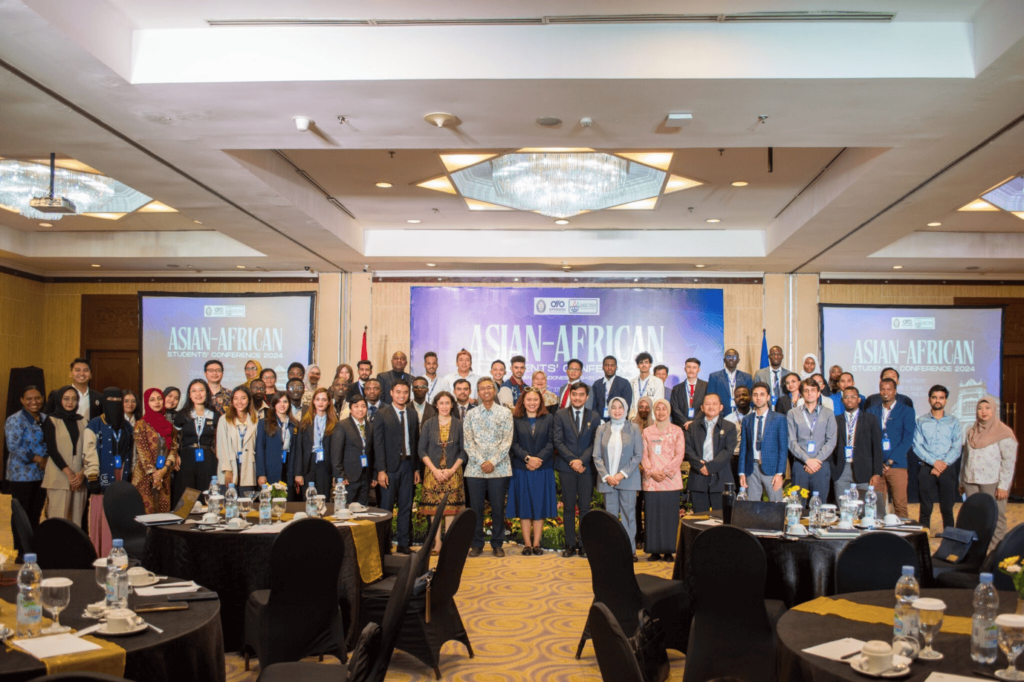 |
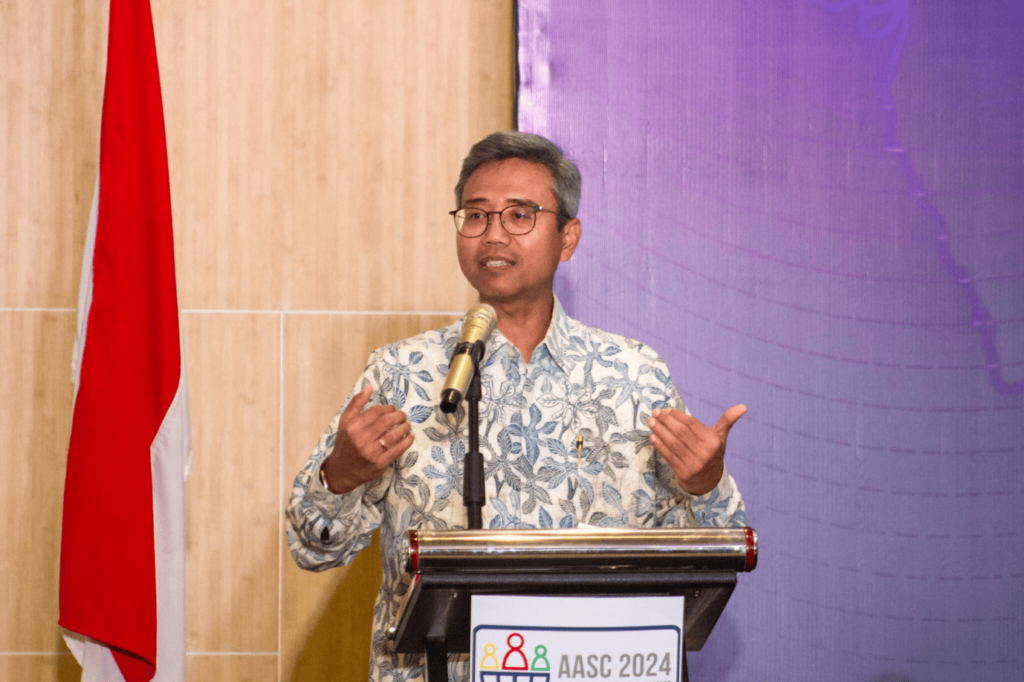 |
The first speaker, Tyas Baskoro Her Witjaksono Aji, discussed “Global South to South Cooperation: Climate Justice and Sustainability.” He highlighted that these two aspects focused on continuity, fairness, equity, and well-being and that South-to-South Cooperation was crucial for achieving the SDGs.
Dessy Ariyanti, Ph.D., then explained: “South-to-South Cooperation for Global Challenges.” With the growing population, we must begin to ensure the sustainability of the current natural resources for future generations. Universities can act as catalysts for initiating South-to-South Cooperation to address the global climate crisis by finding ways to use minimal resources for maximum benefits for both current and future societies.
Next, Prof. Bulan Prabawani, Ph.D., discussed “Private Sector’s Role in Advancing SDGs.” To strengthen the goals of sustainable development, all parties must collaborate. Currently, global emissions in Asia are very high due to numerous factories, while Africa also faces a high population crisis. Therefore, in its development, the corporate sector must focus on ecosystem sustainability and energy conservation to achieve long-term national prosperity.
Pulung Widhi Hari Hananto, S.H., M.H., L.L.M., presented “Climate Action and Climate Justice.” He noted that South-to-South Cooperation was formed based on the historical struggles of Asian and African countries, which share a similar background as developing nations. Now, the climate crisis poses a threat if humans do not undertake ecosystem conservation efforts on Earth. Through this conference, students can increase their awareness of environmental issues, conduct research and innovation, and collaborate with other sectors to drive change.
The next session was a panel discussion with five panels: Panel 1 (SDG 7: Affordable and Clean Energy), Panel 2 (SDG 4: Quality Education), Panel 3 (SDG 9: Industry, Innovation, and Infrastructure), Panel 4 (SDG 11: Sustainable Cities and Communities), and Panel 5 (SDG 13: Climate Action). (Titis-Public Relations)
Source: undip.ac.id

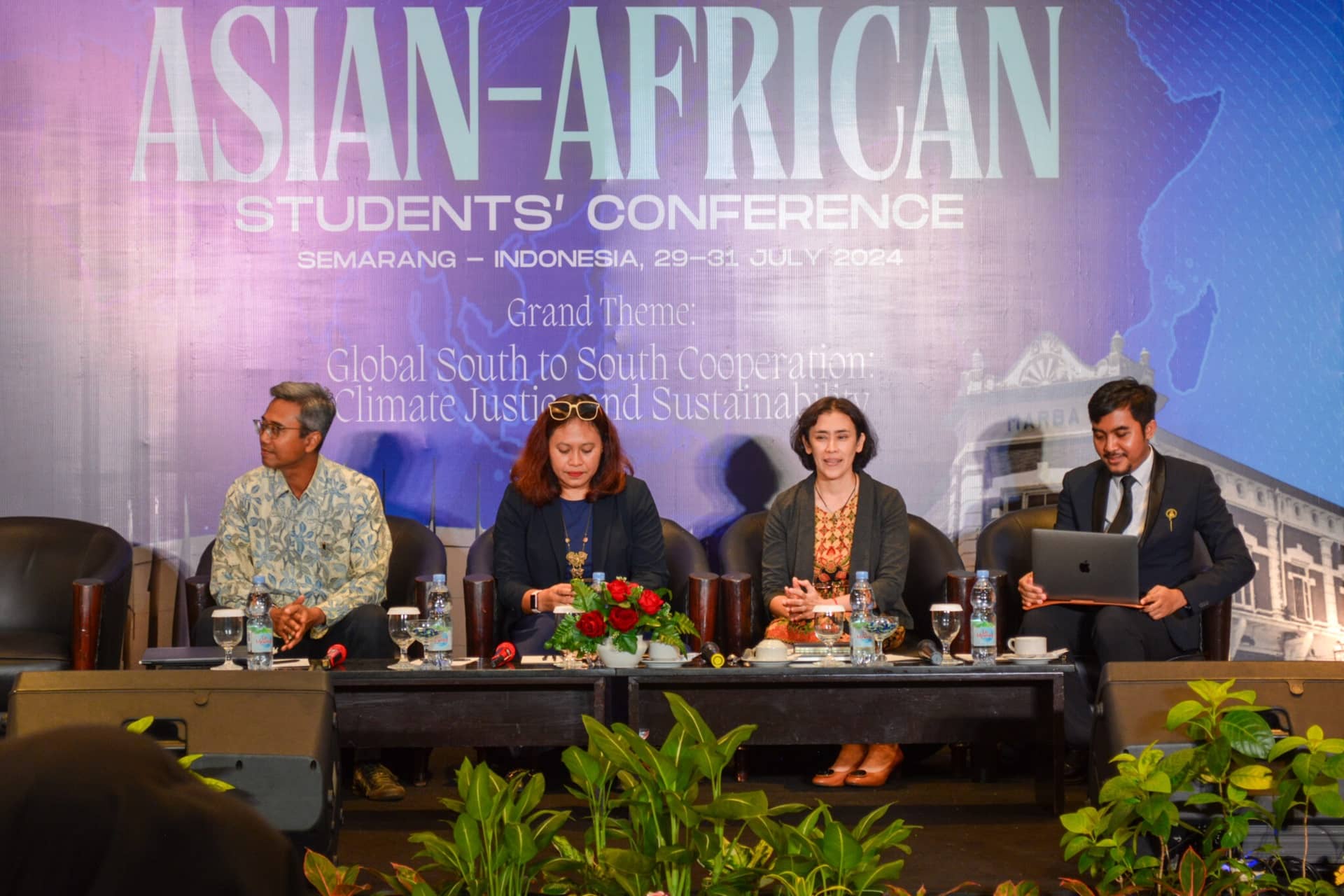
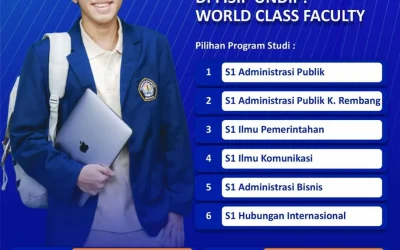
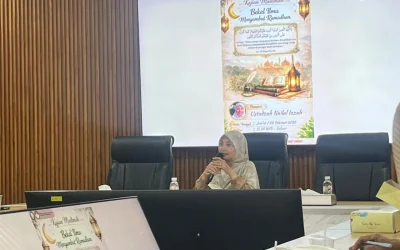
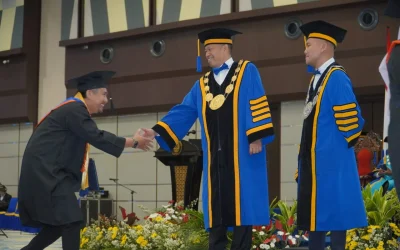
0 Comments